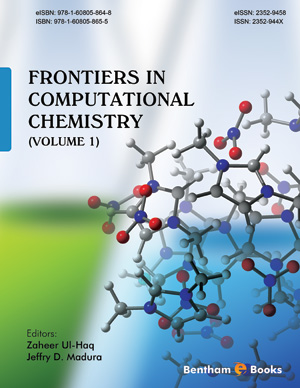Abstract
Computational methods relying on first principles are fundamental for dissecting basic physicochemical properties of biological systems and unveiling mechanistic details that are often silent to experiments. The tireless improvement of theoretical schemes for molecular modelling and simulations, coupled to the increasing computational power of novel architectures and integrated with available experimental inputs, allows today exploring the functioning of biological systems with unprecedented accuracy. Indeed, molecular simulations at both the quantum mechanics and molecular mechanics levels are nowadays able to dissect with high confidence the structural and dynamical features of large systems in native-like conditions, up to the point that their mode of action can be modulated in a controlled fashion. These computational chemistry strategies are particularly appealing when applied to pharmaceutically relevant targets. In this chapter, we will present recent successes of computational investigations applied to a broad variety of biochemical systems that are promising or validated targets for drug discovery. In particular, we will show how molecular modelling at the quantum mechanics level is key for revealing the mechanistic details of catalysis in bacterial and viral metallo-enzymes. We will continue by discussing how accurate molecular mechanics-based free energy calculations can provide a new quantitative description of the function of systems of relevance for multidrug resistance in bacteria. In the final part of the chapter, we will show examples where computational and medicinal chemistry is fully integrated with structural and biochemical data to study function and inhibition of target enzymes implicated in cancer and other inflammatory-related diseases. The final goal of these studies is to develop new molecular entities potentially endowed with a desired pharmacological activity. This chapter will therefore define the contribution of emerging approaches and recent advances in the field of computational chemistry for translating the atomic-level understanding of complex biological phenomena into useful information to progress in molecular medicine.
Keywords: Hybrid QM/MM, molecular dynamics, molecular modelling, multiscale modelling, protein ligand interactions, structure-based drug design.






















